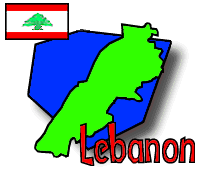Word of the Day: Keefuk?/keefik? — "How are you?; mnih/mniha — "I'm fine"
Person of the Day: Janine Moussa ![]()
Place of the Day: Beirut Corniche
Group Dispatch, January 31–February 1


Questions? Ask Padraic ![]() !
!
Return to Fast Facts
 |
 |
 |
 |
 |
|
Itinerary/ Journal |
Discussions |
About Lebanon |
eDscape Projects |
Scrapbook |
|
|
|
|
|
|
|
Copyright 1997-2004 BikeAbout. All rights reserved.

